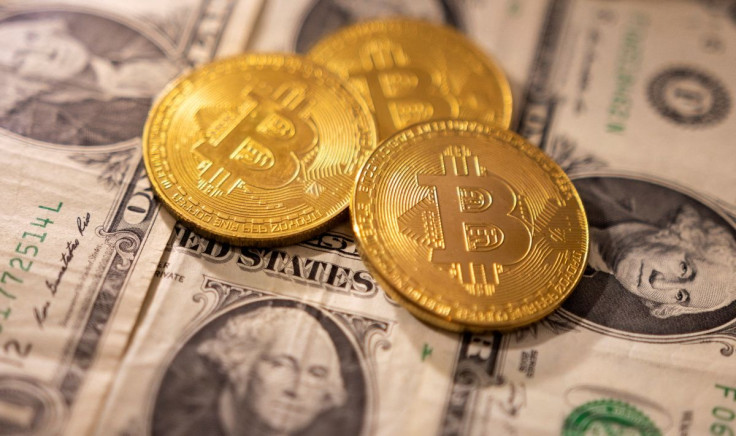Why Bitcoin Probably Hasn't Bottomed Out Just Yet
KEY POINTS
- After a very tentative rally last week, crypto prices are falling again
- Bitcoin faces significant headwinds in terms of wider economic conditions and low market confidence
- Trying to time the bottom is almost impossible and can lead to emotional investment decisions
Just a week ago, crypto prices were flashing green and Bitcoin (BTC) topped $24,000 for the first time in over a month. The total crypto market capitalization had finally moved back above the $1 trillion mark and some investors dared to hope the worst might be over. Sadly, those hopes were unfounded. Various pieces of news, including Tesla's revelation that it had sold 75% of its Bitcoin, stopped that brief rally in its tracks.
It would be amazing to think that crypto prices had fallen as low as they're going to go and we could put the difficulties of the past eight months behind us. But this is unlikely. There are too many hurdles to overcome, and prices could still fall further.
Why Bitcoin probably hasn't bottomed out
Nobody has a crystal ball, and it's impossible to know for sure what Bitcoin may do next. However, we can look at the factors that may influence prices and make some educated guesses. There are two main reasons why the current price slump is likely to continue: macroeconomic conditions and market confidence.
1. Macroeconomic conditions
Many economists warn that the U.S. could soon face a recession. Plus, consumers are grappling with spiraling costs of living, the Russia-Ukraine crisis shows no signs of abating, and there's an energy crisis in Europe. None of these are conducive to a crypto rally.
Part of the reason crypto and stock prices are down this week is uncertainty over two announcements due in the coming days. First up, the Federal Reserve will decide how much it will raise rates by. Higher rates are not good for crypto prices as they can cause investors to pull away from riskier assets.
The other number to watch is GDP. One way to define a recession is two quarters of negative growth. If the Bureau of Economic Analysis says the economy has declined again in the second quarter of this year, we can expect a lot of headlines about recession. Not everybody agrees with these figures (or this definition of a recession). But even the perception that we're in a recession will probably have an impact on crypto.
2. Crypto market confidence
A lot has happened in crypto in recent months and it's going to take time to rebuild people's confidence. We've seen the collapse of a major coin and the implosion of several crypto lending platforms, on top of the dramatic price drops. Unfortunately, a lot of people who bought crypto for the first time last year are now underwater on their investments. This means the value of their portfolios is less than what they originally invested.
In addition, there's a new cloud hanging over cryptocurrencies. The SEC has said that at least nine of the cryptos trading on Coinbase are actually securities. The worst case scenario is that it takes action against those individual projects and against crypto exchanges that have traded them. The SEC is already pursuing a case against Ripple (XRP), and we may see more to come.
Finally, investors are waiting for regulatory clarity. It is hard to see how prices can rally again when we don't know what shape increased regulation will take. On the positive side, it's extremely unlikely that the U.S. will follow China and ban crypto completely. But it may, for example, push forward with its own digital dollar. It may also introduce much stricter registration requirements and trading rules. All of these would have significant implications for the cryptocurrency industry.
What it means for investors
If we could all time the market, we'd all be able to buy at the absolute lows and sell at the highs. But that's not the way investing works, and trying to find the absolute bottom can instead lead us to make emotional decisions.
It's important to think long term and look at how you think Bitcoin and crypto might perform in the coming five, 10, or even 20 years. There are reasons for optimism -- some financial gurus believe Bitcoin could be worth $500,000 or even $1 million one day. However, there are also reasons for caution -- crypto could change the way we use money, but it could also collapse completely.
If you are optimistic about Bitcoin, you might treat this as a wider period of accumulation, rather than trying to find the bottom. If you do, make sure you only invest money you can afford to lose, and don't prioritize any crypto buying over other financial goals such as your emergency fund and retirement savings. Bitcoin could still fall further, especially if the global economic situation worsens. The trick is to position yourself to benefit from any gains but ensure you don't face financial ruin if crypto prices fall to zero.
This article originally appeared in The Motley Fool.
Emma Newbery owns the English-language newspaper The Bogota Post. She began her editorial career at a financial website in the U.K. over 20 years ago and has been contributing to The Ascent since 2019. The Motley Fool has a disclosure policy.



















